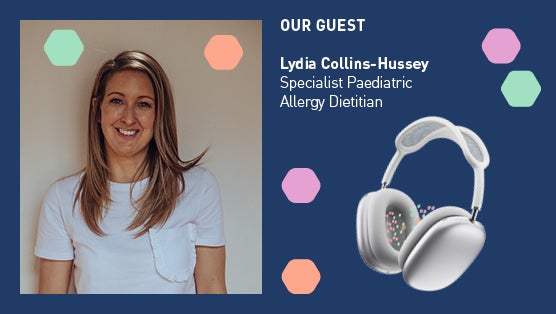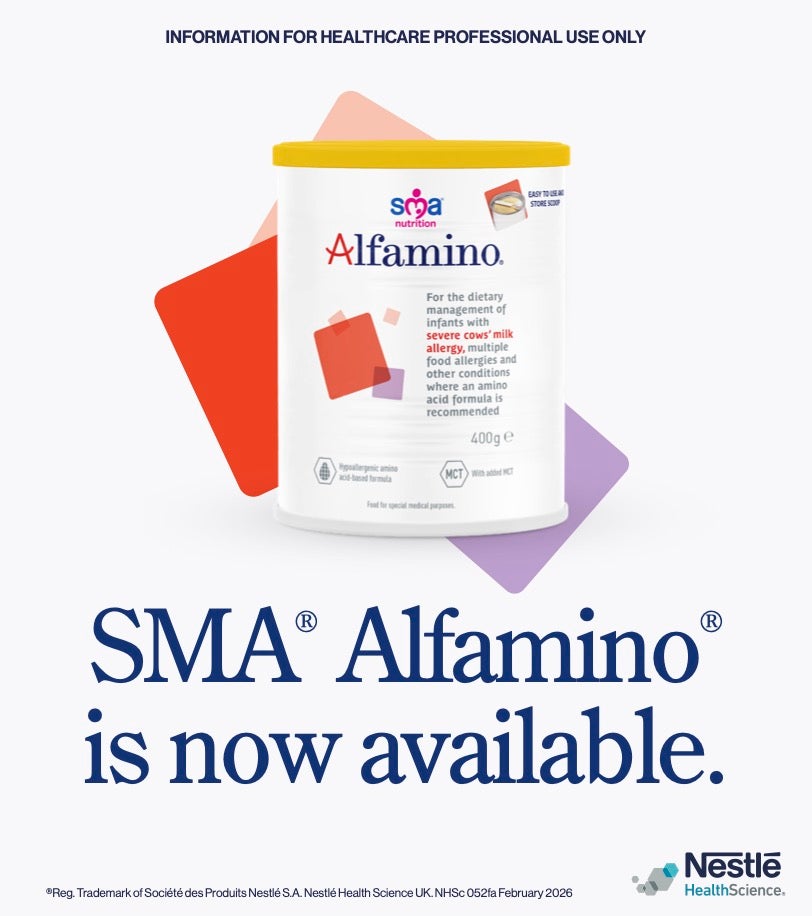This site is intended only for the use of UK Healthcare Professionals
Listen: Tips for complementary feeding (weaning) & food allergy introduction for infants with food allergies with Lydia Collins Hussey
- 18/07/2023

Information for Healthcare Professional Use Only
In this episode of the Inside Medical Nutrition podcast, Dr. Linia Patel speaks with Lydia Collins Hussey, a specialist paediatric dietitian, about complementary feeding, weaning and allergen introduction for infants with food allergies.
The conversation delves into recent trends in food allergies, highlighting the need to translate research into clinical practice and policy. Lydia mentions the importance of maternal diets, the microbiome, and early allergen introduction. Cows’ milk allergy is identified as the most common, followed by egg and peanut allergies. Lydia outlines the process of managing a child with suspected allergies, including taking a detailed allergy-focused history, assessing symptoms (immediate vs. delayed), and considering family history and eczema.
The podcast then answers the question ‘What is complementary feeding’ and Lydia provides guidance around commencing weaning. This includes the numerous considerations that should be made regarding the safe commencement of weaning as well as the significance of food allergy management and early allergen introduction.
For children with food allergies, Lydia advises starting allergen introduction between four and six months, especially for those with severe eczema or pre-existing allergies. She recommends introducing allergens in small amounts, mixing them with breast milk or formula, and ensuring the child is well during introduction. She also highlights the importance of maintaining tolerance by regularly including allergens in the diet.
Listen to the full podcast to learn more about complementary feeding, weaning and allergen introduction for infants with food allergies.
You may also be interested in this podcast with a specialist paediatric dietitian on managing enteral nutrition patients in the community.
IMPORTANT NOTICE:
We believe that breastfeeding is the ideal nutritional start for babies and we fully support the World Health Organisation’s recommendation of exclusive breastfeeding for the first six months of life followed by the introduction of adequate nutritious complementary foods along with continued breastfeeding up to two years of age.
We also recognise that breastfeeding may not be an option due to certain medical conditions. Parents should only feed Infant formula for special medical purposes under supervision of a healthcare professional after full consideration of all feeding options, including breastfeeding. Continued use has to be assessed by the healthcare professional in relation to the baby's progress bearing in mind any social and financial implications for the family. Infant formula should always be prepared, used and stored as instructed on the label in order to avoid risks to a baby’s health.
